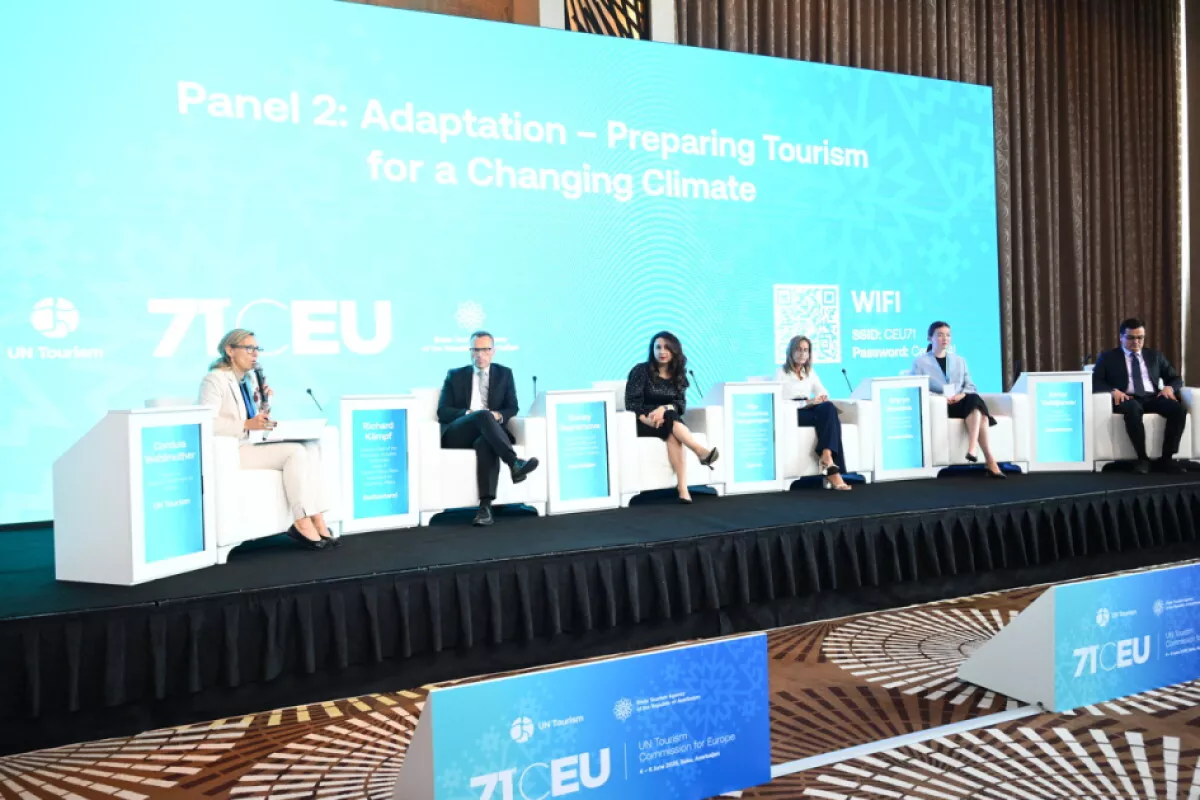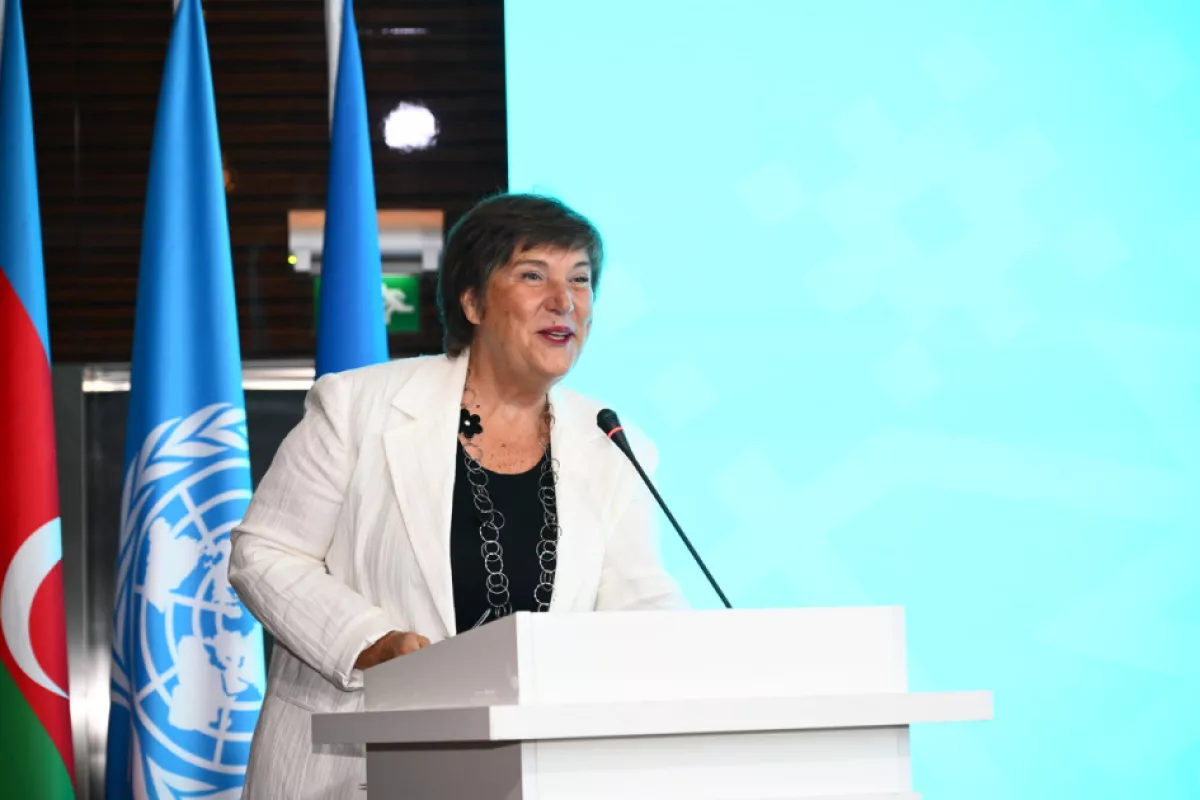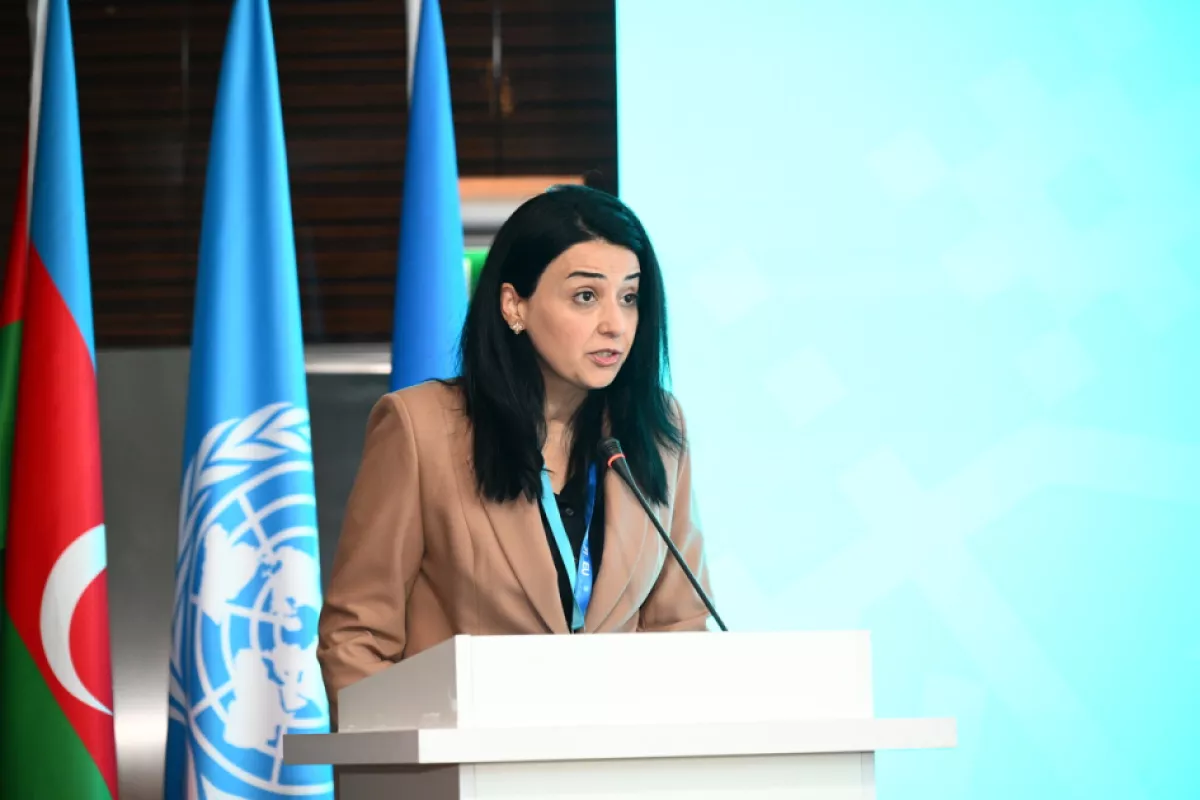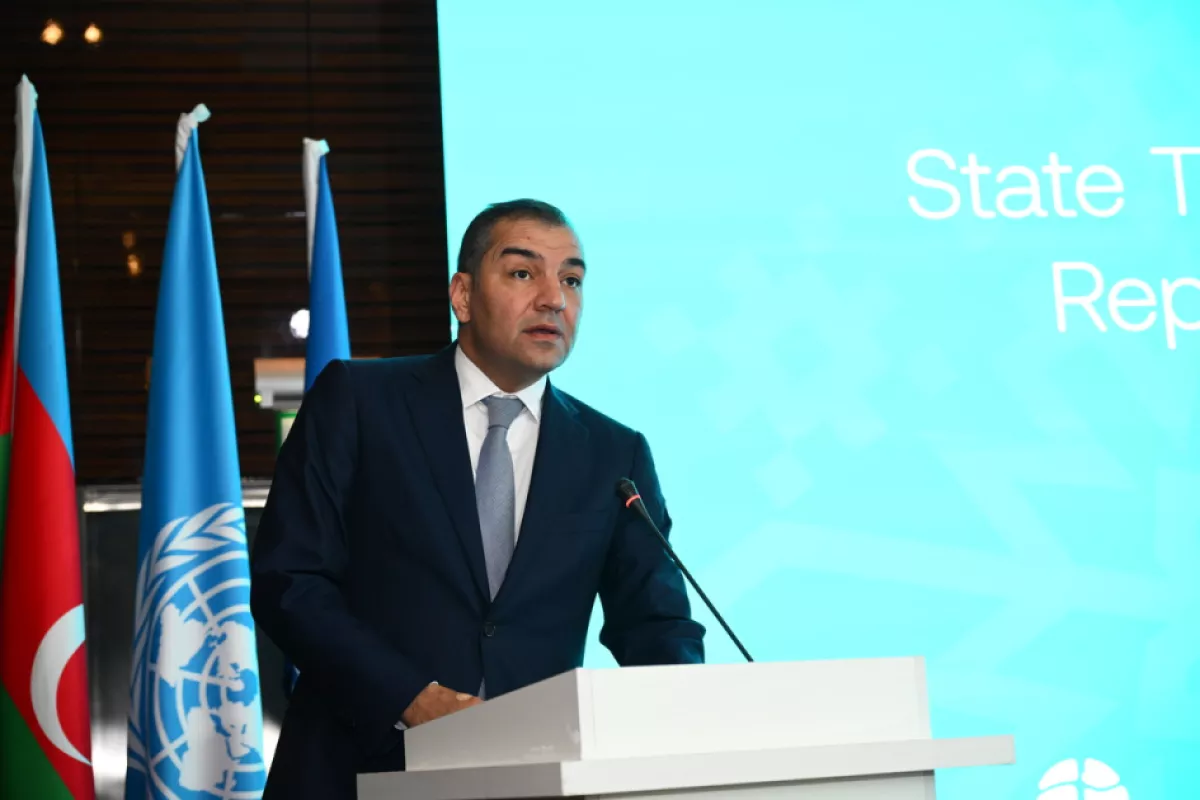Baku hosts climate-focused tourism conference as part of UNWTO session PHOTO
On June 6, Baku held a dedicated conference on advancing climate action in the tourism sector, under the theme “From Momentum to Progress: Advancing Climate Action in Tourism After COP29.”
The event took place within the framework of the 71st session of the European Regional Commission of the UN World Tourism Organisation (UNWTO).
Azerbaijan’s State Tourism Agency shared with Caliber.Az that the conference brought together participants to discuss ways to integrate tourism into both national and international climate agendas.
Discussions centred on the urgency of stepping up climate measures in the tourism industry following COP29, reducing carbon emissions, promoting sustainable tourism practices across Europe, and securing the necessary funding to support a green transition.
Speakers and participants underlined the significance of key international commitments, particularly the Glasgow Declaration and the COP29 Declaration on Enhancing Climate Action in the Tourism Sector, which encourage governments, private enterprises, and other stakeholders to adopt clear carbon reduction goals and support aligned initiatives.
The event featured two major panel discussions: “Mitigation – Practical Steps Toward a Low-Carbon Tourism Future” and “Adaptation – Preparing the Tourism Sector for a Changing Climate.”
These panels examined approaches to decarbonising tourism, strategies for calculating and reducing emissions, and ways to address climate-related risks such as rising sea levels, extreme weather patterns, and the degradation of ecosystems. There was also a strong emphasis on building sustainable infrastructure and incorporating adaptation strategies into long-term tourism planning.
Azerbaijan used the occasion to present its national efforts in tackling climate change within the tourism sector. Officials outlined the development of a “Tourism Climate Action Plan” and emphasised the country's commitment to sustainable infrastructure in shaping future tourism projects.
By Tamilla Hasanova












